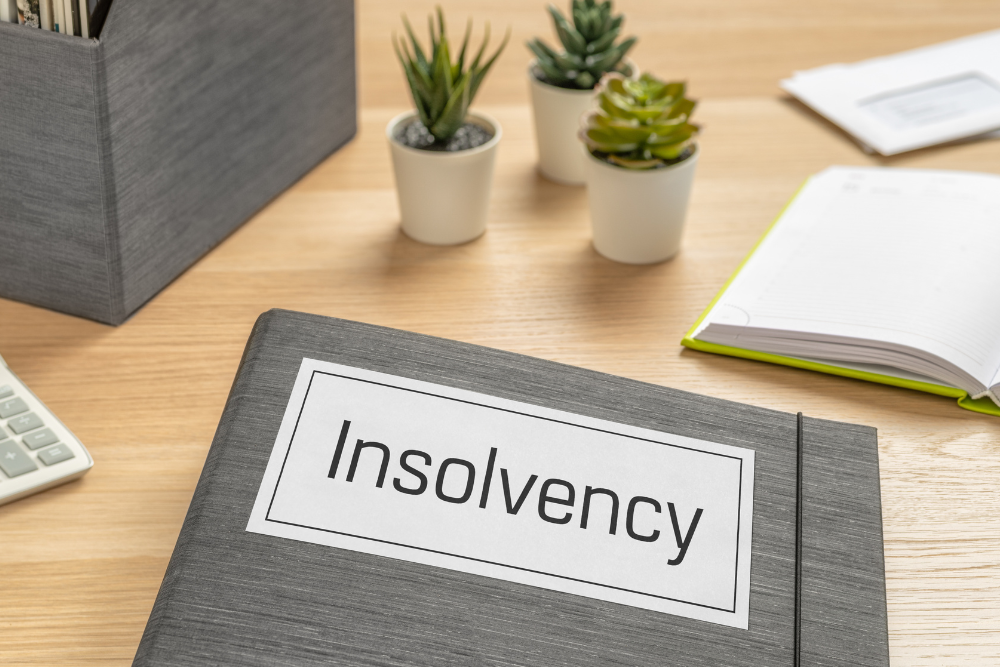9 Easy Facts About Insolvency Practitioner Described
Table of ContentsHow Insolvency Practitioner can Save You Time, Stress, and Money.Getting My Insolvency Practitioner To WorkThe Single Strategy To Use For Insolvency PractitionerAll about Insolvency PractitionerThe Ultimate Guide To Insolvency Practitioner
Whether or not you require to make use of a bankruptcy specialist (IP) to liquidate your business depends on numerous variables. While engaging an insolvency specialist for all forms of liquidation is not a legal requirement, doing so can typically improve the procedure and make sure compliance with lawful demands. Liquidating a business is a vital decision that features significant effects.
It is a treatment used when a firm does not have any creditors, or every one of their creditors can be repaid completely with legal interest. Understanding the different kinds of insolvency processes can assist you establish the very best strategy for your company's liquidation or other official insolvency procedures itself.
This is compulsory in order to follow legal demands - Insolvency Practitioner. This is because IPs have the necessary qualifications and experience to ensure that the liquidation process is performed according to all relevant laws and guidelines. By engaging a certified bankruptcy practitioner, you can have satisfaction recognizing that your business's liquidation process will certainly be managed expertly and in compliance with the appropriate legal needs
What Does Insolvency Practitioner Do?
The insolvency specialist is appointed as a liquidator and is liable for handling the company and liquidator's debts exceptional liabilities and properties. This process includes selling the business's possessions and dispersing the proceeds to creditors. Upon conclusion of the procedure, the company is eliminated from the register at Business House.
Stopping working to do so can lead to individual liability for the business or director for the creditor's financial debts. Volunteer liquidation, that includes Financial institutions' Voluntary Liquidation (CVL) and Participants' Volunteer Liquidation (MVL), is launched by the firm's directors and shareholders when they can no longer pay their financial obligations. In a CVL, the bankruptcy expert is designated as the liquidator, responsible for managing company financial debts and all company properties.

Our Insolvency Practitioner Diaries
By examining the knowledge and experience of possible insolvency experts, you can make sure that you choose a specialist who possesses the essential credentials to manage your business's liquidation process properly. While insolvency practitioner-led liquidation is often one of the most suitable program of activity for companies encountering insolvency, there are different methods to take into consideration, such as striking off and partial liquidation.
It's vital to evaluate all offered choices before selecting the next ideal remedy or course of action for your business. Striking off firms' registers is an extra uncomplicated and cost-effective means to close inactive or small business without any financial debts or possessions. To strike off a firm, its name is eliminated from the Business Residence register by sending kind DS01.
Before deciding for striking off, it's essential to evaluate the benefits and downsides of this method and consider whether it's the best selection for your company. Partial liquidation is another option to insolvency practitioner-led liquidation, wherein a firm liquidates certain possessions and liabilities while remaining to run with the remaining properties and liabilities.
An Insolvency Expert will have the ability to recommend you of the ideal training course of activity to take and ensure that everything runs smoothly. Unfortunately, it is not possible to liquidate a company without a liquidator. Selecting an authorized bankruptcy professional is needed for the process of volunteer liquidation to begin.
The Ultimate Guide To Insolvency Practitioner
It is feasible to close and liquidate your business without using a liquidator, provided your company is solvent and you fulfill the qualification demands to dissolve or liquidate it. If your business is insolvent, you might be called for to utilize a liquidator and start official bankruptcy treatments. Here are a few other insightful articles regarding firm liquidation in the UK:.
Being in a position where you're unable to pay your company's creditors is extremely stressful. In an browse around this site attempt to prevent raising the degree of debt, lots of companies try to bargain directly with their lenders and accept an informal setup. If the debt is rather tiny and owed to one financial institution, and the lender is being participating, getting in right into an casual financial obligation plan is possibly the very best solution, instead of browsing the web for 'a bankruptcy practitioner near me'.
On the other hand, if there are multiple financial institutions and the level of debt is big, lenders might not be so eager or cooperative. To avoid liquidation or insolvency, it is far better to employ a bankruptcy professional to formulate formal proposals and work out with lenders in your place.
The smart Trick of Insolvency Practitioner That Nobody is Discussing
Whilst it is a method to manage financial obligation, there are considerable dangers involved with this type of debt setup - Insolvency Practitioner. If a financial institution wants to get in into an informal setup (IA) wherein the borrower has actually consented to make regular, if reduced, settlements to repay the debt, it's crucial to adhere to the arrangement

The financial his comment is here institution is within their legal rights to back out of the agreement and request the courts for your company to be sold off at any type of time. A formal setup that has been recommended by an insolvency expert in your place, and concurred by a financial institution, offers a much more secure option.